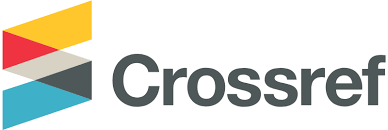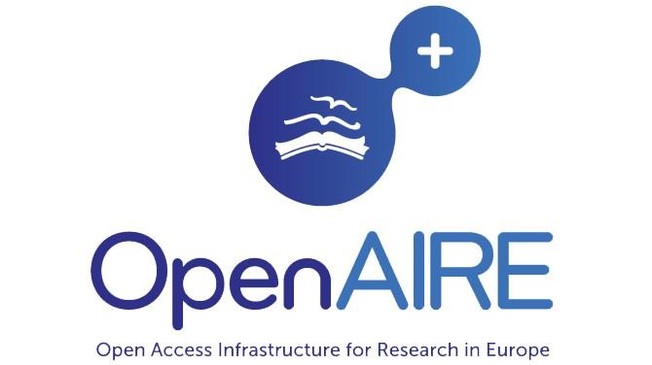LEMBAR KERJA PESERTA DIDIK (LKPD) BERBASIS PROJECT BASED LEARNING PADA MATERI FLUIDA STATIS
DOI:
https://doi.org/10.21009/03.1201.PF13Abstract
Abstrak
Penelitian ini bertujuan untuk mengembangkan Lembar Kerja Peserta Didik (LKPD) berbasis Project Based Learning pada materi Fludia Statis yang dikemas dalam bentuk flipbook digital. LKPD yang dikembangkan berisi kegiatan proyek dan praktikum yang disesuaikan dengan tahapan Project Based Learning didukung dengan gambar, video, audio, dan evaluasi peserta didik. Metode penelitian yang digunakan adalah Research and Development (R&D) dengan model ADDIE yang terdiri dari Analysis, Design, Development, Implementation, dan Evaluation. Uji validasi LKPD dilakukan oleh ahli media, ahli materi, dan ahli pembelajaran, serta diujicobakan kepada guru fisika dan peserta didik SMA. Berdasarkan hasil analisis kebutuhan yang dilakukan dengan pengamatan lapangan melalui kuisioner Google Formulir dan wawancara kepada 35 peserta didik SMA, hasil menunjukkan sebanyak 100% (35 responden) menyatakan pernah menggunakan LKPD, 71,4% (25 responden) menyatakan belum pernah menggunakan LKPD berbasis Project Based Learning, 91,4% (32 responden) menyatakan LKPD yang digunakan hanya berisi soal-soal teori dan perhitungan matematis, dan 94,3% (33 responden) menyatakan masih kesulitan memahami materi Fluida Statis. Dengan demikian dibutuhkan Lembar Kerja Peserta Didik (LKPD) berbasis Project Based Learning pada materi Fludia Statis sebagai bahan ajar yang memudahkan proses pemahaman peserta didik.
Kata-kata kunci: LKPD, Project Based Learning, Fluida Statis.
Abstract
This study aims to develop student worksheets based on Project Based Learning on Static Fluid material which is packaged in the form of digital flipbooks. The student worksheets developed contains project activities and practicum adapted to the Project Based Learning stages supported by pictures, video, audio, and student evaluations. The research method used is Research and Development (R&D) with the ADDIE model which consists of Analysis, Design, Development, Implementation, and Evaluation. Student worksheets validation tests were carried out by media experts, material experts, and learning experts, and were tested on physics teachers and high school students. Based on the results of a needs analysis conducted by field observations through Google Form questionnaires and interviews with 35 high school students, the results showed that 100% (35 respondents) said they had used LKPD, 71.4% (25 respondents) said they had never used project-based student worksheets, 91.4% (32 respondents) stated that the students worksheets used only contained theoretical questions and mathematical calculations, and 94.3% (33 respondents) stated that they still had difficulty understanding Static Fluid material. Thus a student worksheet based on Project Based Learning is needed on Static Fluid material as a teaching material that facilitates the process of understanding students.
Keywords: Students Worksheets, Project Based Learning, Static Fluids.
References
[2] R. Azizah, L. Yuliati, E. Latifah, “The physic problem solving difficulties on high school student,” Jurnal Penelitian Fisika Dan Aplikasinya (JPFA), vol. 5, no. 2, 2015.
[3] R. M. Branch, “Instructional Design-The ADDIE Approach,” New York: Springer, Bruning, 2009.
[4] M. K. G. Camarao, F. J. G. Nava, “High school students’ difficulties in physics,” In A paper presented at the National Conference on Research in Teacher Education (NCRTE), Quezon City, The Philippines, 2017.
[5] Dick, Carey, “The Systematic Design Instruction,” Boston: Pearson, 2005.
[6] Ditpsd.kemdikbud.go.id, “Kurikulum Prototipe Utamakan Pembelajaran Berbasis Proyek,” Diakses pada 23 Januari 2023, dari https://ditpsd.kemdikbud.go.id/artikel/detail/kurikulum-prototipe-utamakan-pembelajaran-berbasis-proyek.
[7] A. M. Fauziah, T. Nurita, “Activities of students in using worksheet based on Contextual Teaching and Learning,” Journal of Physics: Conference Series, vol. 1417, no. 1, 2019, https://doi.org/10.1088/1742- 6596/1417/1/012088.
[8] K. Herlina, “Development of Project Based E-Worksheet to Stimulate Scientific Creativity and Collaborative Skills,” Berkala Ilmiah Pendidikan Fisika, vol. 9, no. 2, pp. 222-233, 2021.
[9] M. M. Keller, K. Neumann, H. E. Fischer, “The impact of physics teachers’ pedagogical content knowledge and motivation on students’ achievement and interest,” Journal of Research in Science Teaching, vol. 54, no. 5, pp. 586-614, 2017.
[10] Khoirurrijal et al., “Pengembangan Kurikulum Merdeka,” Malang: CV, Literasi Nusantara Abadi, 2022.
[11] Nugraha et al., “Combination of inquiry learning model and computer simulation to improve mastery concept and the correlation with critical thinking skills (CTS),” In AIP Conference Proceedings, AIP Publishing LLC, vol. 1708, no. 1, p. 070008, 2016.
[12] N. Rahayu, “Pengaruh pembelajaran dengan pendekatan inquiry terhadap penguasaan konsep dan scientific skill materi sistem pencernaan,” Jurnal Inovasi Pendidikan IPA, vol. 3, no. 1, pp. 70-77, 2017.
[13] N. R. Ergül, E. K. Kargın, “The effect of project based learning on students’ science success,” Procedia-Social and Behavioral Sciences, vol. 136, pp. 537-541, 2014.
[14] R. Rauziani, Y. Yusrizal, C. Nurmaliah, “Implementasi model project based learning (pjbl) dalam meningkatkan hasil belajar dan berpikir kritis siswa pada materi fluida statis di sma inshafuddin,” Jurnal Pendidikan Sains Indonesia, vol. 4, no. 2, pp. 39-44, 2016.
[15] Santoso et al., “The development of students’ worksheets using project based learning (PjBL) in improving higher order thinking skills (HOTs) and time management skills of students,” In Journal of Physics: Conference Series, IOP Publishing, vol. 1806, no. 1, p. 012173, 2021.
[16] D. S. Sari et al., “The Development of E-Worksheet Based on Project to Promote Student’s Creative Thinking and Digital Literacy Skills,” In 7th International Conference on Research, Implementation, and Education of Mathematics and Sciences (ICRIEMS), vol. 7, no. 1, pp. 647-654, 2021.
[17] V. Serevina, I. M. Astra, F. V Danoza, “Development of E-Learning Video Using a Contextual Approach to Distance Learning Static Fluid Discussion,” Asian Journal of Science Education, vol. 3, no. 1, pp. 70-80, 2021.
[18] M. C. Sutarja, Sutopo, E. Latifah, “Identifikasi Kesulitan Pemahaman Konsep Siswa pada Fluida Statis,” Prosiding Seminar nasional Pend IPA Pascasarjana UM, no. 1, pp.339-350, 2016.
[19] Vokasi.kemdikbud.go.id, “Sosialisasikan Kurikulum Merdeka Di Pekalongan,” Diakses pada 23 Januari 2023, dari https://vokasi.kemdikbud.go.id/read/b/sosialisasikan-kurikulum-merdeka-di-pekalongan
[20] Z. Zammiluni, A. Ulianas, M. Mawardi, “Development of Guided Inquiry Based Work Sheet with Class and Laboratory Activity on Chemical Bonding Topic in Senior High School,” International Journal of Chemistry Education Research, 60-66, 2018.




